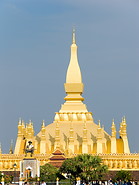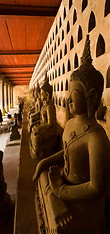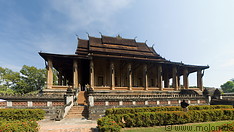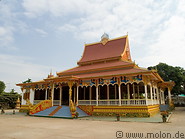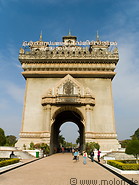Vientiane, the capital of Laos, has a population of 200000 and is one of southeast Asia's most laid-back capitals, with relatively little traffic in the streets. Vientiane has no tall buildings and exudes a special aura that combines Lao, Chinese, Thai, French, Soviet and American elements. The city is located in a fertile plain on a broad curve on the northeastern bank of the Mekong River. King Setthathirath officially established it as the capital of Lan Xang in 1560. When Lan Xang fell apart in 1707, it became an independent kingdom. In 1779, it was conquered by the Siamese general Phraya Chakri and made a vassal of Siam. Later it became the capital of Laos under the French protectorate in the late 19th century. It has continued as the capital until today.
Vientiane has changed a lot since my last visit in March 2000. There are now more cars in the streets (but still very few for a capital), and you can feel that the economy is speeding up. There is more dynamism in the streets, more activity, especially in the tourist sector. Mobile phones are now relatively widespread.
Vientiane has changed a lot since my last visit in March 2000. There are now more cars in the streets (but still very few for a capital), and you can feel that the economy is speeding up. There is more dynamism in the streets, more activity, especially in the tourist sector. Mobile phones are now relatively widespread.
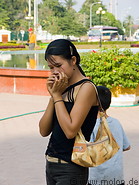
|
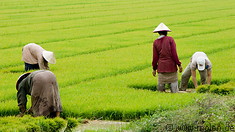
|
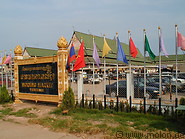
|
|
|
6 photos of people in Vientiane
|
16 photos of the surroundings of Vientiane
|
20 miscellaneous photos of Vientiane
|
Gallery with all images
|
Related travelogues
|
Page viewed 113298 times since 12.08.2006
©Copyright Alfred Molon

